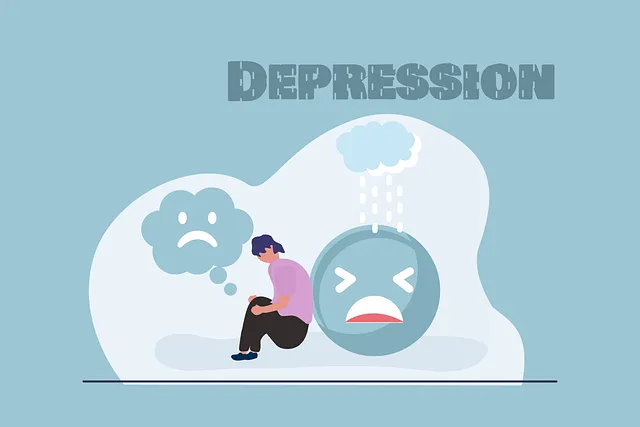Kaiser Permanente's mental health facility in Highlands Ranch prioritizes Resilience and Mental Health (RFM) through holistic care, cultural competency training, and safe environments. They empower patients with emotional intelligence, stress management, and coping strategies using mindfulness meditation, CBT, group activities, and tailored interventions. The RFM program builds resilience, adaptability, and emotional well-being, transforming challenges into opportunities for growth, as evidenced by successful patient journeys.
At Kaiser Permanente Highlands Ranch, we explore the power of RFM (Resilience, Flexibility, and Mastery) as a transformative tool for enhancing mental health. This approach focuses on building resilience in a supportive environment, empowering individuals to navigate life’s challenges with grace. Through a combination of techniques and practical strategies, we delve into how RFM can be integrated into daily life, offering tangible ways to foster emotional resilience. Discover inspiring success stories from patients who have experienced profound transformations through this innovative method at our leading mental health facility.
- Understanding RFM: Resilience and Mental Health at Kaiser Permanente Highlands Ranch
- The Importance of Building Resilience in a Supportive Environment
- Techniques and Exercises for Enhancing Emotional Resilience
- Integrating RFM into Daily Life: Practical Strategies for Patients
- Success Stories: How RFM has Transformed Lives at Kaiser Permanente
Understanding RFM: Resilience and Mental Health at Kaiser Permanente Highlands Ranch

At Kaiser Permanente Highlands Ranch, a leading mental health facility, understanding the significance of Resilience and Mental Health (RFM) is integral to their approach to patient care. RFM focuses on building mental toughness and coping strategies among individuals, enabling them to navigate life’s challenges and setbacks effectively. This holistic concept goes beyond traditional therapy by empowering patients with tools to enhance resilience, fostering a sense of control and well-being.
Kaiser Permanente recognizes that mental health is deeply intertwined with overall wellness, and their healthcare provider cultural competency training emphasizes the importance of addressing resilience. Through various initiatives, they aim to reduce the stigma associated with mental illness, ensuring patients receive supportive care without judgment. Additionally, Risk Management Planning for Mental Health Professionals is a key strategy to safeguard both patients and providers, creating a safe and compassionate environment where resilience-building exercises can thrive.
The Importance of Building Resilience in a Supportive Environment

Building resilience is an integral part of fostering well-being, especially within supportive environments like Kaiser Permanente mental health facilities in Highlands Ranch. In today’s fast-paced world, where stress and challenges are ever-present, cultivating emotional intelligence and a robust self-care routine becomes essential for overall mental health. The dedicated professionals at these facilities understand the profound impact of resilience-building exercises on their patients’ lives.
By creating safe spaces and encouraging participation in therapeutic activities, individuals can enhance their ability to cope with adversity. This process involves not only managing stress but also cultivating self-esteem and a positive mindset. Through regular practice, one can develop a strong emotional intelligence, enabling them to navigate life’s complexities with greater ease. The Kaiser Permanente mental health facility in Highlands Ranch plays a vital role in empowering individuals to take charge of their mental well-being through tailored programs designed to support Self-Care Routine Development for Better Mental Health and Self-Esteem Improvement.
Techniques and Exercises for Enhancing Emotional Resilience

At the Kaiser Permanente mental health facility in Highlands Ranch, professionals emphasize various techniques and exercises to enhance emotional resilience among patients. These strategies are designed to help individuals cope with stress, anxiety, and other mental health challenges. One effective approach is mindfulness meditation, which encourages focus on the present moment, thereby reducing rumination on past events or worries about the future. Another powerful tool is cognitive-behavioral therapy (CBT), which equips individuals with coping skills to challenge negative thoughts and behaviors.
Beyond individual techniques, building resilience often involves group activities that foster a sense of community and shared support. These can include stress management workshops, where participants learn practical tools for dealing with demanding situations. Cultural sensitivity in mental healthcare practice is also integral to effective resilience-building. By tailoring interventions to respect and incorporate individuals’ cultural backgrounds, healthcare providers can enhance engagement and outcomes, ensuring that every patient receives personalized care that resonates with their unique experiences.
Integrating RFM into Daily Life: Practical Strategies for Patients

Integrating RFM (Resilience, Flexibility, and Mastery) into daily life is a powerful approach for patients at the Kaiser Permanente mental health facility in Highlands Ranch. This strategy focuses on empowering individuals to navigate challenges with resilience, fostering adaptability in response to life’s ups and downs. Practical strategies include incorporating mindfulness meditation practices into morning routines to enhance focus and calmness throughout the day. Regular self-care activities, such as engaging in hobbies or spending time in nature, promote emotional well-being and build mastery over one’s reactions.
At the Kaiser Permanente mental health facility, patients are encouraged to develop personalized risk management planning, drawing from techniques like cognitive reframing and problem-solving skills. These tools enable individuals to confront stressors with a sense of agency, transforming perceived threats into opportunities for growth. By integrating RFM principles into their lives, patients can build resilience that extends beyond therapy sessions, fostering mental agility and emotional strength in all aspects of daily life.
Success Stories: How RFM has Transformed Lives at Kaiser Permanente

At Kaiser Permanente mental health facility in Highlands Ranch, RFM (Resilience, Flexibility, and Mindfulness) has emerged as a powerful tool for transforming lives. The program, designed to enhance emotional intelligence and self-awareness exercises, has been integrated into their mental wellness coaching programs development. Through regular practice, individuals have reported significant improvements in their ability to navigate life’s challenges with greater resilience and a profound sense of inner peace.
These success stories highlight the impact of RFM on fostering mental wellness. By cultivating emotional intelligence, participants have become more attuned to their thoughts and emotions, enabling them to respond rather than react in stressful situations. This shift has not only improved their mental health but also their overall quality of life. The transformative power of RFM at Kaiser Permanente serves as a testament to the potential of mindfulness-based practices in promoting lasting well-being.
Resilience is a powerful tool for navigating life’s challenges, and Kaiser Permanente Highlands Ranch has recognized its significance in enhancing mental well-being. By implementing RFM (Resilience, Flexibility, and Mindfulness) practices, this mental health facility empowers patients to build emotional fortitude and adapt to life’s curveballs. Through supportive environments, evidence-based techniques, and practical strategies, RFM becomes an accessible and transformative resource for all. As demonstrated by success stories from Kaiser Permanente, investing in resilience training can lead to profound personal growth and improved overall mental health.






